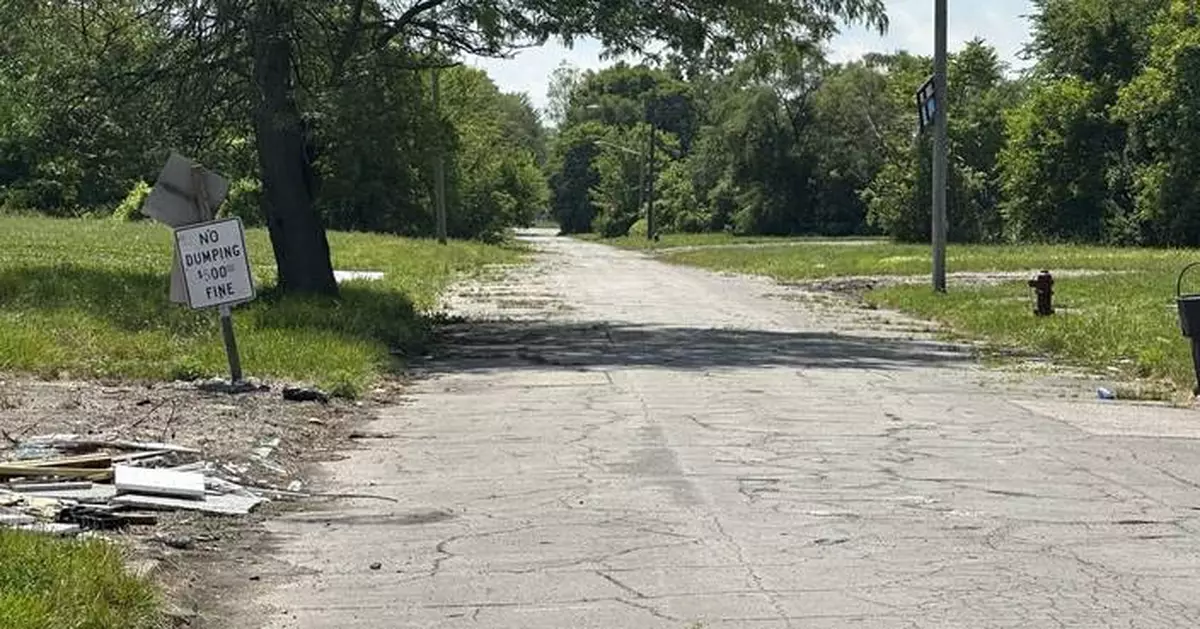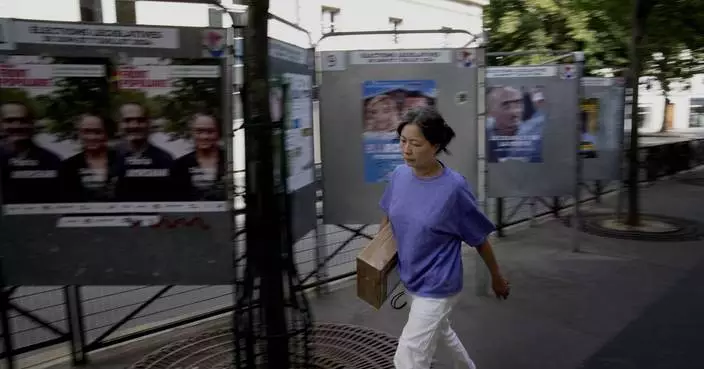DETROIT (AP) — Patricia Kobylski remembers when there were lots of people living in her eastside Detroit neighborhood. There aren't as many anymore — and haven't been for a long time.
“Right now, on our side of the street there are probably only 10 houses. Should be 50, 60,” the 78-year-old Kobylski said Monday after the city announced a plan to bring to her neighborhood solar arrays, which are blocks of ground-based solar panels.
Detroit is using something it has plenty of — vacant land — to produce something the city needs — clean and relatively inexpensive energy.
Pending approval by the City Council, Kobylski's Gratiot-Findlay neighborhood eventually will see solar arrays on about 23 acres (9.3 hectares) of land. Not far away, another eastside neighborhood is to get arrays on nearly 41 acres (16.5 hectares), while a third will get arrays on nearly 40 acres (16.1 hectares).
Five other neighborhoods are finalists to also get solar arrays. Resident groups had to apply to be considered for the program.
The city is looking to build solar energy arrays on about 200 acres (81 hectares). The arrays would produce enough clean energy to offset the electricity used currently by 127 municipal buildings.
Detroit will use $14 million from an existing utility fund for up-front costs that include acquiring and clearing the land. The solar fields are expected to ultimately save the city $4.4 million per year.
“We have seen property values and income tax revenues grow dramatically in other neighborhoods where the city has made investments,” Mayor Mike Duggan said. “I'm confident our $1.1 million-a-year investment in these long-forgotten neighborhoods will produce a real recovery in these communities.”
The city touts its Solar Neighborhoods project as a national model for finding solutions to climate change. Duggan revealed plans a year ago following a challenge by President Joe Biden for cities to use more solar power while taking advantage of the Inflation Reduction Act, which provides federal tax incentives of 30% or more of the costs to cover renewable energy.
Over the past year, neighborhood groups held meetings to consider hosting solar fields. Those selected will receive $15,000 to $25,000 in community benefits to pay for energy efficiency upgrades. They can choose to use the benefits for new windows, roof repairs, new energy efficient appliances, new furnaces and hot water heaters, better home insulation, smart thermostats, energy-efficient lighting and battery back-up for outages.
Duggan said he hopes to break ground on the project by the end of the year.
Donna Anthony, 63, also is in one of the three neighborhoods announced Monday. She wants to get new attic insulation, vinyl siding and a new generator for her home. Anthony also looks forward to not having vacant lots and abandoned houses nearby, which often become sites for illegal dumping.
“When you come outside you get depressed when you see all this trash being dropped,” Anthony said of discarded tires and construction materials. “You go out and clean it up and it's right back there the next day.”
Under Duggan, the city has made leaps in stabilizing and fixing up neighborhoods that had been deteriorating and in advanced stages of blight. Primarily with federal funds at its disposal, Detroit has demolished at least 24,000 vacant structures since 2014, according to the mayor's office. Hundreds of others have been transferred to the Detroit Land Bank which has fixed up many houses and resold them to families. Dozens of vacant lots — left by the razing of homes — are being sold to people living next door to maintain and beautify what otherwise would become overgrown, weedy eyesores.
Secure solar farms could also be an aesthetic benefit in these areas, according to Sarah Banas Mills, director of the Center for EmPowering Communities, Graham Sustainability Institute at the University of Michigan.
“There are not very many communities that would say ’You know, the thing that would make this better is a solar farm,'” Mills said. “A neighborhood might want a solar farm there to effectively fight illegal dumping. That’s a really unique way of thinking.”
“On more developed land, places that aren’t green field right now, solar is sometimes perceived as a negative change to the landscape,” Mills continued. “In places that already are industrial, it is as an improvement.”
About 633,000 people call Detroit home — more than a million fewer than the 1.8 million who lived in the city in the 1950s. What Detroit may lack in population, it makes up for in land. Currently, about 19 square miles (49 square kilometers) of the 139-square-mile (360-square-kilometers) city is vacant.
“The challenge with solar is that it’s an industrial investment," said Anika Goss, chief executive of Detroit Future City, a nonprofit focused on improving the lives of the city’s residents through community and economic development. “Unlike trees or some sort of stormwater management, it has its downsides," she continued. Since the panels absorb energy from the sun, they can also create heat islands — or parts of cities with higher average temperatures than the surrounding areas — "in places that might already have challenges with heat islands.”
Goss also said she is disappointed that the energy produced by the solar arrays will not be used to lower utility bills for residents in the selected neighborhoods.
“The checks that they’re giving as a community benefit for energy, I think that's a good thing,” she said. “They can use it for window upgrades. They can use it for their own stormwater management. It’s not enough for a new roof, but it could be enough to put something in that could make their own home energy efficient."
The city says 21 homeowners in the selected neighborhoods have chosen buy-outs to allow for demolition of their houses to make way for the arrays. Renters will receive the cost of relocating and 1.5 years of free rent when they move.
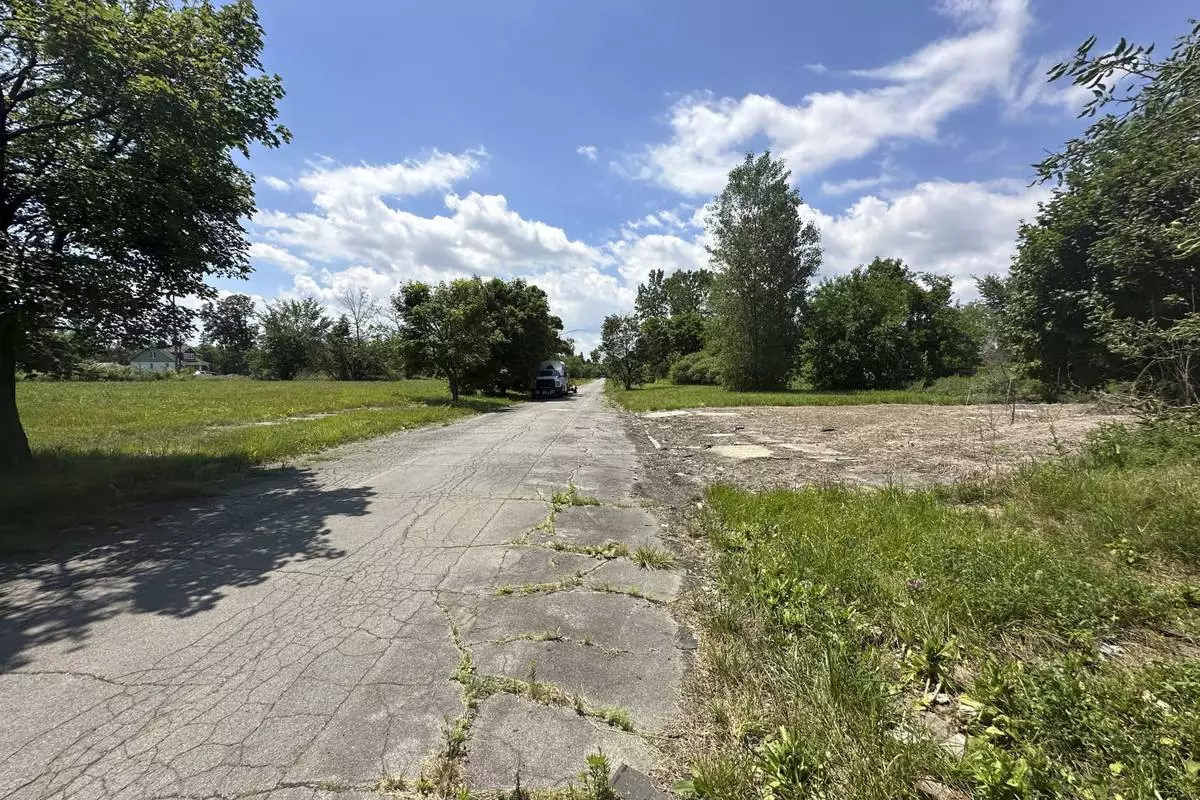
Overgrown empty lots sit on Detroit's eastside, Monday, June 24, 2024. The eastside neighborhood is one of a few that are expected to receive solar arrays as part of Detroit's efforts to remove blight and find uses for underpopulated areas in the city. (AP Photo/Corey Williams)
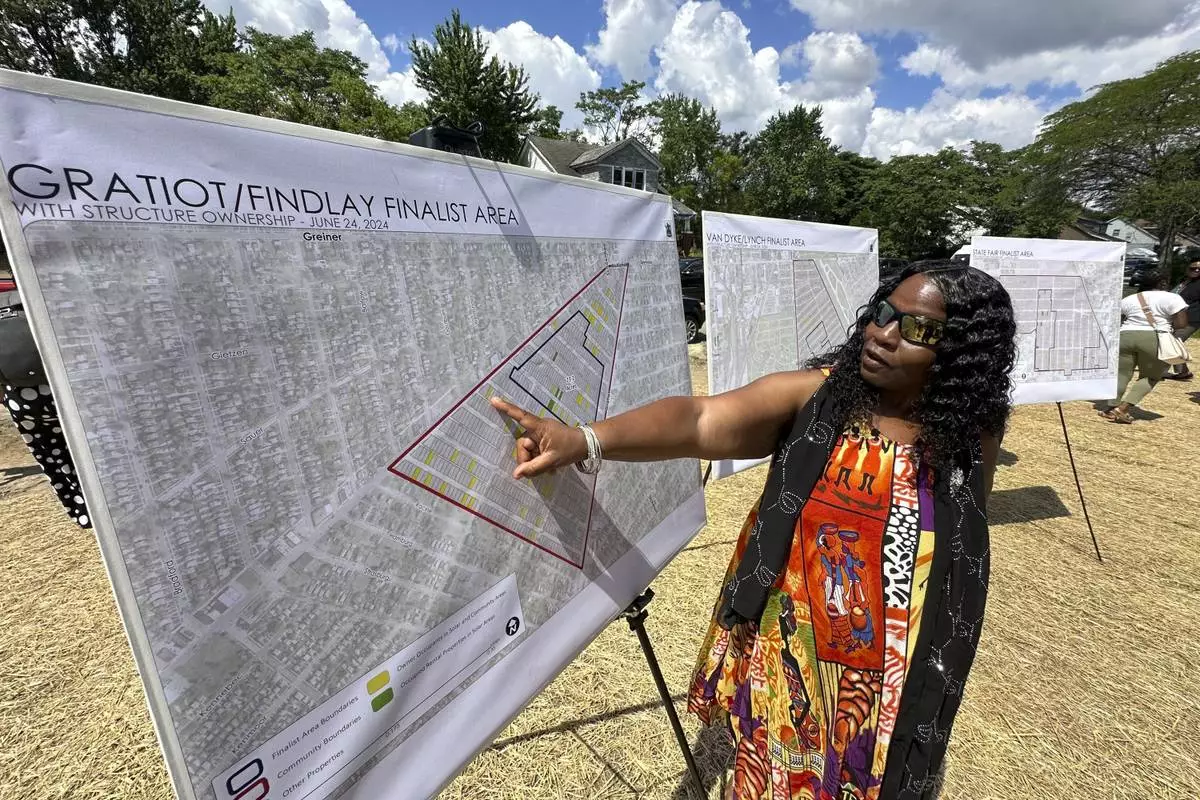
Donna Anthony, 63, points to a map of her neighborhood that was chosen to receive solar arrays, Monday, Jun 24, 2024, in east Detroit. The arrays would produce enough clean energy to offset the electricity used currently by 127 municipal buildings. Residents will receive funding to make their homes energy efficient. (AP Photo/Corey Williams)

Donna Anthony, 63, points to a map of her neighborhood that was chosen to receive solar arrays, Monday, Jun 24, 2024, in east Detroit. The arrays would produce enough clean energy to offset the electricity used currently by 127 municipal buildings. Residents will receive funding to make their homes energy efficient. (AP Photo/Corey Williams)
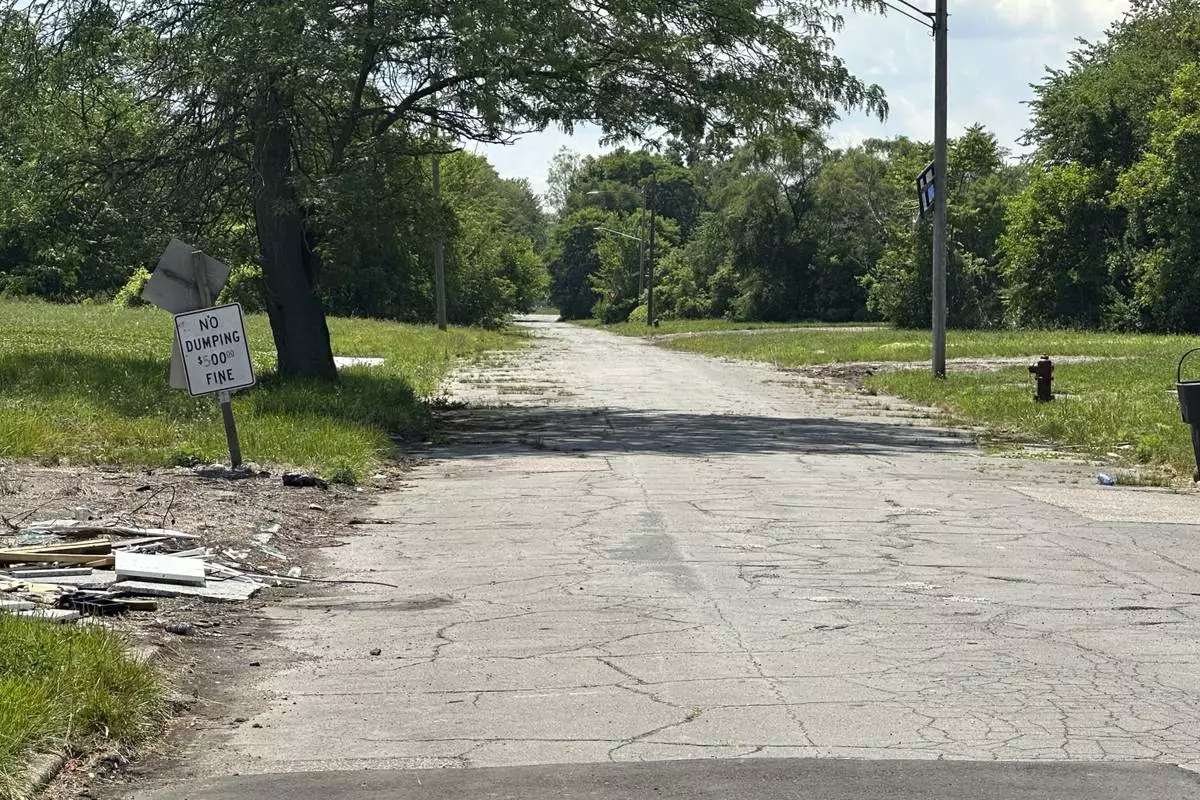
Trash and debris little an empty lot on Detroit's eastside, Monday, June 24, 2024. The eastside neighborhood is one of a few that are expected to receive solar arrays as part of Detroit's efforts to remove blight and find uses for underpopulated areas in the city. (AP Photo/Corey Williams)


